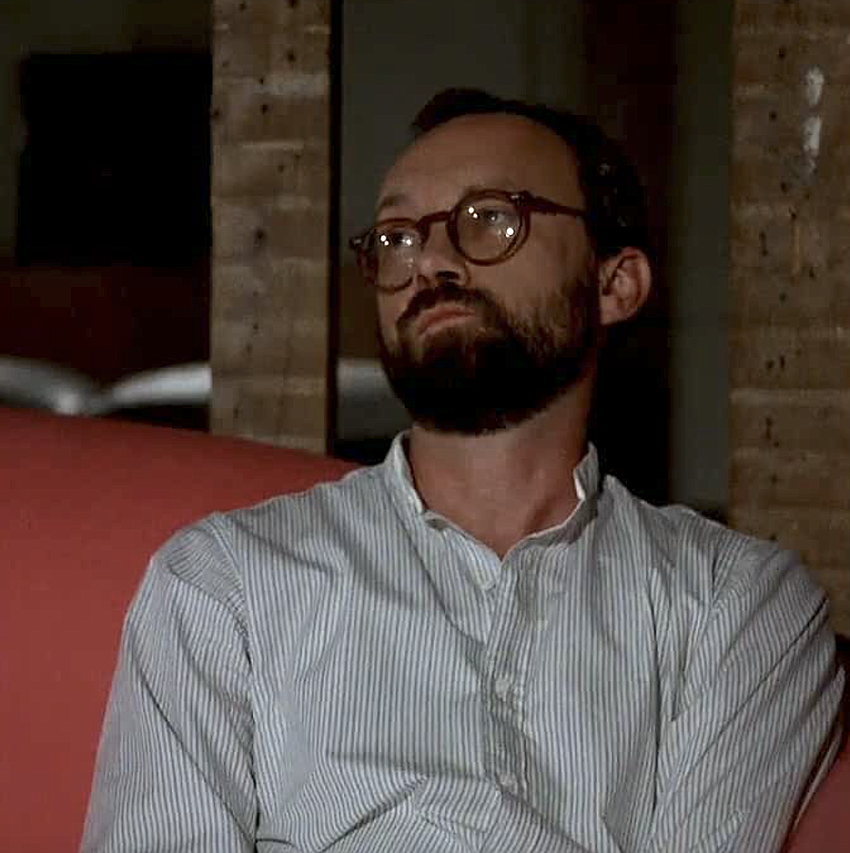- May 22, 2025
-
-
Loading

Loading

Most local readers recognize the name Robert Plunket as Sarasota magazine's longtime gossip columnist "Mr. Chatterbox." Plunket's byline also has graced the pages of the Observer, where he has written about distinctive homes for a decade. However, few know Plunket is the author of a 1983 novel, "My Search for Warren Harding."
His book follows a scheming academic who will do anything to get his hands on love letters written by the 29th president. Set mostly in Los Angeles, "Warren Harding" is a hilarious look at life on the periphery of stardom, a vantage point that Plunket knows well.
But after years of being a "Forrest Gump" of sorts, Plunket could find himself in the spotlight. "My Search for Warren Harding" is being reissued on June 6 by New Directions Publishing and the literary world is taking notice. The new version of "Warren Harding" includes a foreward by novelist and essayist Danzy Senna, which was published online April 26 by The Paris Review.
Coincidentally, "After Hours," a Martin Scorsese film in which Plunket had a small but memorable role, is also being rereleased, by the Criterion Collection. As he prepares for his closeup, Plunket took time to talk about the blurred lines between truth and fiction, political correctness and book banning.
I had a boring job in an office. Everybody loved my business reports. They were hilarious. So I started thinking, I'll write a novel. How hard can it be?

But I needed a subject. I was a big reader. I loved books about politicians and their private lives. Harding was the Trump of his day, but with a much more benevolent character. One girlfriend, one mistress after another, all the time with a crabby older wife keeping him on a very short leash. Then comes along a teenage girl from his hometown in Ohio named Nan Britton. She was calculating and ambitious and set her sights on him. They had a long affair and she gave birth to his daughter.
When he died — unexpectedly and still in office in 1923 —and she was left out of the will, she wrote a book ("The President's Daughter") about the affair that caused quite a scandal. I loved the book. When I found out she was still alive — this was 1980 — and living in California, I started thinking. She probably has old love letters and such. It was like that Henry James novella "The Aspern Papers." A plot began forming in my mind...
Mixed. Some people loved it. Other people, mostly jerks, hated it. I've kept a list of their names.
The publisher tells me it's a forgotten classic of American literature. Sounds about right.
"Autobiographical" isn't the right word. But being a new writer uncertain how to proceed, I modeled the main character, a historian who's after the letters, on myself. I didn't know how to create a fictional character so I had him do what I would have done under the same circumstances. Now, I find out in Danzy Senna's introduction that I created a brilliant portrait of "a closeted gay white man with a narcissist's insecure vapid center. A superficial, arrogant, homophobe." That took a little swallowing.
It's all true. Or rather, it's true-ish. It was tricky because the old lady — Harding's mistress — was still alive when I wrote it, and the publisher didn't want to get sued. I had to rewrite several sections with a lawyer looking over my shoulder. Even though many details have been changed, it's pretty accurate as to what really happened during the Harding presidency.
Several years ago a trove of Harding love letters were discovered. They were from another affair he had. And the letters were exactly the way I imagined them! Forty pages long, full of purple prose and detailed descriptions of his you-know-what.
"My Search for Warren Harding" could never be published today. Now they have people called "sensitivity editors" who make you change the things that might offend people. My writer friend Ann Beattie has a new book coming out and they made her change the expression "bag woman." Apparently they didn't want all the bag women who read Ann Beattie to be offended. In my defense, the world is full of casual racism and people who say terrible things about other people. I write about it, but it doesn't mean I condone it.
Not really. To be closeted you have to be aware that you're hiding. Elliot Weiner, my protagonist, would never admit his gay leanings, even to himself.
Oh, but you're wrong. I am in the closet and plan to stay there. In fact, these days I identify as "hyper-masculine" and my pronouns are "me, him and its." I was gender-fluid for a while but it just didn't work out. Couldn't get the outfits right.
Getting your book banned is a great way to boost sales, and I'm trying very hard. I've sent copies to the Sarasota County School Board and I was planning to send one to Governor De Santis with all the offending passages underlined. Then I realized that those passages sound like the governor himself. But the fact remains: If there was ever a book that should be banned it's "My Search for Warren Harding."
It's about a nice, sweet, rather naive middle-class housewife who falls in with a group of gay men in New York just before AIDS happened. Through them she meets and falls madly in love with a male hustler/porn star named Joe. He is so greedy and avaricious that he sells his used underwear to his fans. Soon our heroine is running his mail-order business and producing his new porn flick. I feel very close to this book because it's all true. Everything in that book actually happened to me. I am that housewife.
Madonna loved the book and optioned the movie rights. I still cherish the memory of the long afternoons spent hanging out with her in her bedroom on Central Park West, eating popcorn and talking about what pigs men are.
I'm writing one now! It's all about Republican politicians in Sarasota. They're on a road trip to Mar-a-Lago when their car breaks down in Okeechobee and they take refuge in what they think is an abandoned fish camp.
As Mr. Chatterbox, Sarasota's leading gossip columnist for 30 years, it was my job to be at the center of the action. Of course, luck helped. I was a regular customer at the adult theater where Pee-wee Herman was arrested, which put me right in the middle of the story. And my nightclub act at Florida Studio Theatre earned a footnote in American history when it paved the way for George W. Bush's ascent to the White House after the contested 2000 election. Since I've retired, things have been much quieter.
No! All my life I've tried to get a teaching job. New College was horrified when I applied there. They said I was exactly what they weren't looking for.

The producers, Amy Robinson and Griffin Dunne (who was also the star), were old pals from our struggling artist days. Marty, as everybody refers to him, agreed to see me and he immediately knew I was the one. He had already hired one guy but he fired him when he saw me. I was so completely a "timid gay man" that I didn't even need lines. I filled up the screen like Marilyn Monroe.
Marty had no problem when you veered off the script a little, so during the first take I began what turned out to be a 10-minute improvised monologue about a dead lover I was still grieving over. I still remember my opening line. "He was just an Asian Studies major, but I loved him." I went on to describe, tearfully, his death during a parasailing accident in Puerto Vallarta.
I remember watching Marty out of the corner of my eye. His mouth was open in disbelief. "A classic!" he exclaimed when I finally finished. Unfortunately, when they showed the movie to preview audiences people started to leave during my monologue so it was cut. That's the story of my life — my best work always ends up on the cutting room floor.